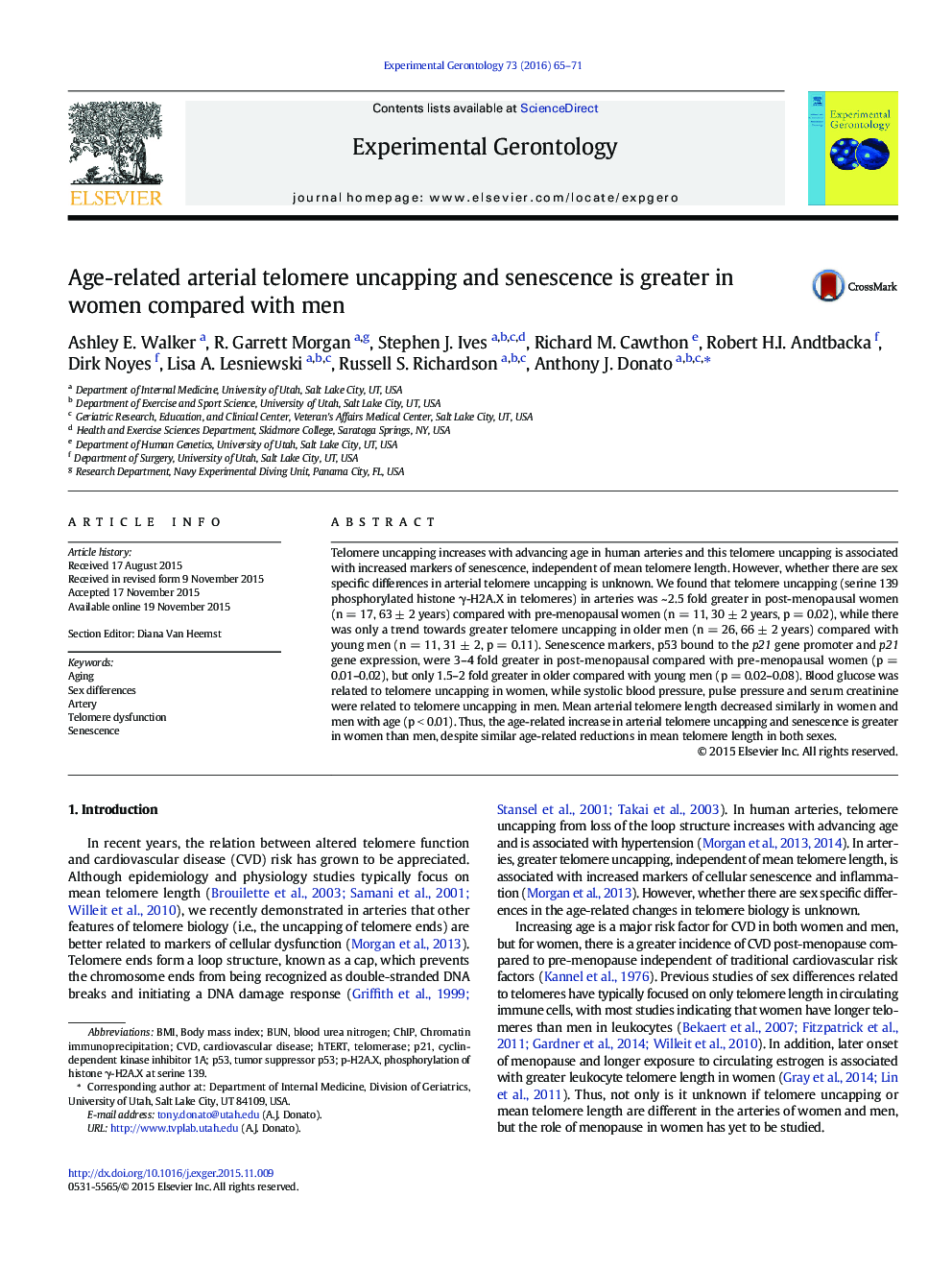| Article ID | Journal | Published Year | Pages | File Type |
|---|---|---|---|---|
| 1906163 | Experimental Gerontology | 2016 | 7 Pages |
•Arterial telomere uncapping and senescence are greater post-menopause in women.•The effect of age on arterial telomere uncapping is greater in women than men.•Mean arterial telomere length shortens with age similarly in women and men.•There are sex differences in which clinical features relate to telomere dysfunction.
Telomere uncapping increases with advancing age in human arteries and this telomere uncapping is associated with increased markers of senescence, independent of mean telomere length. However, whether there are sex specific differences in arterial telomere uncapping is unknown. We found that telomere uncapping (serine 139 phosphorylated histone γ-H2A.X in telomeres) in arteries was ~ 2.5 fold greater in post-menopausal women (n = 17, 63 ± 2 years) compared with pre-menopausal women (n = 11, 30 ± 2 years, p = 0.02), while there was only a trend towards greater telomere uncapping in older men (n = 26, 66 ± 2 years) compared with young men (n = 11, 31 ± 2, p = 0.11). Senescence markers, p53 bound to the p21 gene promoter and p21 gene expression, were 3–4 fold greater in post-menopausal compared with pre-menopausal women (p = 0.01–0.02), but only 1.5–2 fold greater in older compared with young men (p = 0.02–0.08). Blood glucose was related to telomere uncapping in women, while systolic blood pressure, pulse pressure and serum creatinine were related to telomere uncapping in men. Mean arterial telomere length decreased similarly in women and men with age (p < 0.01). Thus, the age-related increase in arterial telomere uncapping and senescence is greater in women than men, despite similar age-related reductions in mean telomere length in both sexes.
